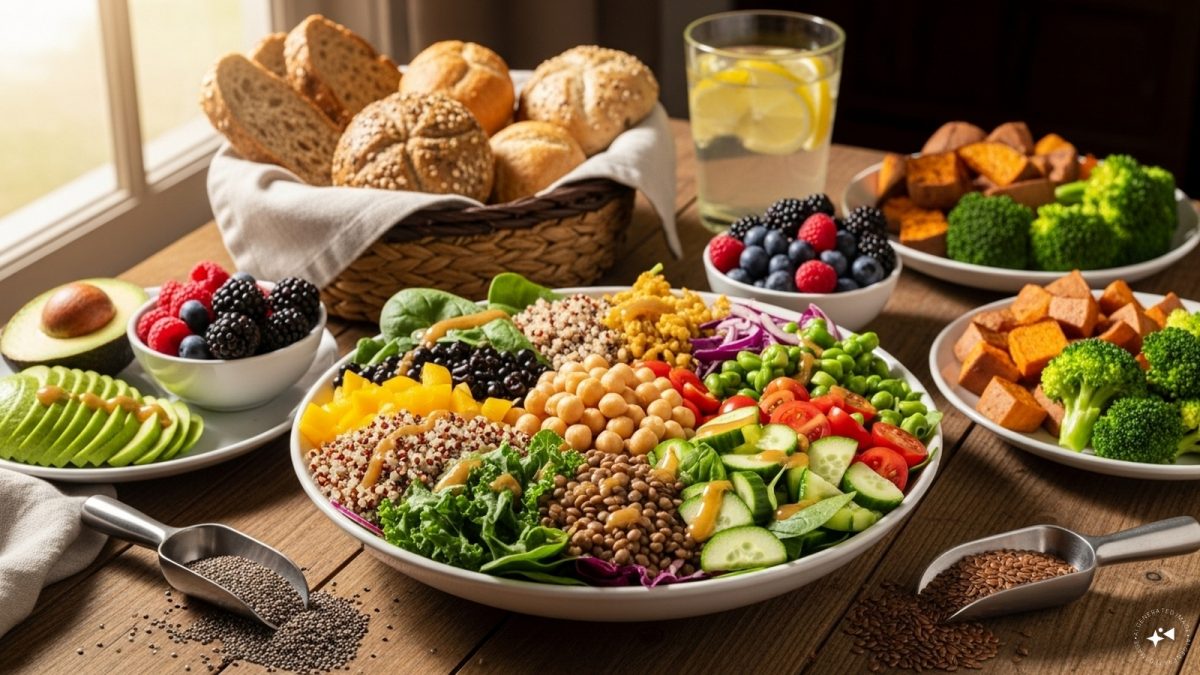Last Updated:
Fibre is an essential component to include in your diet to boost gut health. Check out the common mistakes you might be making when consuming fibre-rich foods.

Experts advise to aim for diverse sources of fibre and consuming 25-30g daily.
Fibre is often regarded as a superstar in the world of nutrition. It plays a crucial role in digestion and heart health; however, even if you include fibre in your diet, you may not experience all of its benefits. This could be due to some common mistakes people make when consuming fibre-rich foods.
Saurabh Sethi, a California-based gastroenterologist and liver specialist, took to Instagram to share some pitfalls to avoid and provided useful insights people should keep in mind while consuming fibre.
Fibre Maxxing Too Fast
While fibre maxxing is beneficial for gut health, doing it too soon will have negative effects. Switching from a low-fibre to a high-fibre diet overnight can overwhelm the digestive system, leading to gas, bloating, and discomfort. “Add gradually. Let your gut microbiome adapt,” Dr. Sethi advised.
Not Drinking Enough Water
If you don’t drink adequate water after having fibre-rich foods, it will lead to dry, hard stools and constipation. If you are eating more fibre, be sure to drink more water.
Sticking To Only Vegetables
Vegetables are undoubtedly a good source of fibre, but depending only on them will be a big mistake. “You’re missing out if you skip beans, oats, chia, and lentils,” Dr. Sethi stated, explaining that when fibre sources are diverse, they foster a diverse microbiome.
Avoiding All Carbs
Dr. Sethi pointed out that cutting all carbs can inadvertently reduce fibre intake. “Whole carbs like quinoa, barley, and legumes are fibre powerhouses,” he stated.
Depending Too Much On Supplements
Relying only on fibre supplements is not ideal. Dr. Sethi agreed that fibre supplements like psyllium husk are helpful, but one should not completely rely on them. “Don’t forget real foods offer fibre plus nutrients, antioxidants, and prebiotics your gut thrives on,” he said.
Thinking Fibre Is Only About Constipation
People often tend to have the notion that fibre is only essential for constipation; however, that is not the case. “Fibre supports immunity, metabolism, brain health, and even mood. Your gut microbes turn fibre into powerful anti-inflammatory compounds,” Dr. Sethi explained.
Not Getting Enough Fibre
A healthy diet does not always mean adequate fibre intake. “You can eat clean and still be fibre-deficient,” Dr. Sethi stated, asking people to aim for at least 25-30 g of fibre intake daily.
Ignoring Food Labels
Fibre goals can be derailed if you don’t check food labels, as not all whole-grain products are fibre-rich. Dr. Sethi advised consuming over three grams of fibre per serving and recommended getting fibre from unprocessed foods.
view comments
- Location :
Delhi, India, India
Read More






